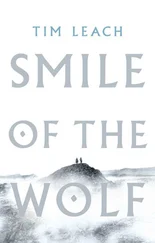A pause. ‘No.’
‘Will you make peace with him?’
Another snort. ‘No.’ Laimei tossed her head, like a dog seeking to calm itself. She stirred her horse forward, but turned back as she went to speak once more. ‘Watch him,’ she said.
‘I will. I understand.’
‘No. You don’t. He does not matter.’ Laimei looked at her brother, and Arite wished that the Cruel Spear was wearing her helm. Then she would not have to see the way she stared at Kai. ‘For Tomyris,’ said Laimei. ‘Watch him for her sake. She loves him, and so he must live. For now, at least.’
*
She liked to come at him unexpectedly. From behind a horse, her body hidden by its legs. From the shadows beyond the campfire, always waiting for the time when the wine and koumiss had flowed freely, when his head began to droop with drink and tiredness.
Then Kai’s daughter would move from the shadows and pounce on him like a mountain cat, arms wrapping up close about his leg or waist. Or, if she caught him sitting, she would loop her arms about his neck and hook her heels about his body like a wrestler. She was already practising the warrior’s art, the way all the children fought and brawled with one another. Or perhaps it was that she had grown tired of seeing him ride away all those years, seeing him choose when he would come back to her. She would fight on her own terms now, it seemed. She was the one to choose.
And always he would roar until she shrieked, stumble and stagger like an ogre lamed by the quick sword of a hero. He would prise her loose and spin her in his arms, but always be sure to carry her away to some quiet corner of a tent, a warm place beside the fire where they might talk softly and freely. For always he knew that she only hunted him when she wished to speak. Often, it was the child’s talk – of hunger, of stories, questions of the past. But sometimes they spoke of other things.
Perhaps it was the sixth night they had travelled together, curled up close to the fire and staring at one another in silence. For he felt no need to talk – for him, it was enough to see her, to hold her close, to know that as long as she lived his life held purpose and meaning. But at last, she spoke.
‘The other children talk,’ she said.
‘Of what?’
‘Of you.’
‘I am sure they do.’ He hesitated, feeling once more the catch about the heart that always comes with shame. ‘Are they cruel to you, my love?’
‘No. Only one or two.’ She made to speak again, then turned her head away, scratched restlessly at her scalp.
‘Do not pick like that little one, you shall hurt yourself.’ His hands fell to her hair, shifting and parting and stroking, as he might have calmed a frightened horse after a storm upon the plains. ‘They are cruel to me, though?’ he said.
She nodded, but did not answer.
‘Why do they not speak more loudly then, and tell the others?’
‘They are frightened of her. ’
‘As well they should be.’ Kai chuckled to himself. ‘But you are not, are you?’
‘I am not a fool, like them. She would not hurt me.’
‘No, she would not. She loves you, as I do.’
‘Would she hurt you?’
He scratched at his beard, and thought it over. ‘I do not know. If she thought that I had earned it.’ He shrugged. ‘She saved my life. So it seems she does not wish me harmed.’
‘She will teach me to fight. She promised me that.’
‘Not for a long time, child.’
A forbidden and shameful thought came to him then. If it were the end of their people, she would not have to fight. She might remain a true child, untouched by the killing, all the way up to the end. For that was the sweet sadness of the Sarmatian mother and father – to raise every child a killer.
She nestled closer to him, a lazy smile on her face.
‘What is it that makes you smile, my love?’
‘I like my father being a captain,’ she said, as haughty as any princess of the plains.
He laughed then, but there was a catch in his throat as he did.
‘When will we find the others?’ she asked.
‘Soon.’
‘What shall we do then?’
‘I do not know,’ he said, even as his fingers touched the captain’s mark on his armour, and felt a piece of it flake away under his nails.
*
It was on the next day that Kai saw it – once more, the smoke rising into the air. But it was not the black smoke of a burning village that rose on the horizon, nor the sign of some little band of travellers, but many twisting strands of grey smoke all joining together. Soon they could smell the scent of cooking fires, the rich tang of hemp. All the signs of a great gathering ahead of them, such as was rarely seen upon the plains.
The songs were echoing freely amongst his company, then. Not the kind of music that had so often been their trail companion – the sweet soft death songs of those in a battle against hopeless odds, the keening chords of those mourning for the lost. He listened to them sing out the bawdy tunes of drink and lovemaking, the hard proud stories of long-lost heroes. For though they rode in the twilight of their people, they knew too what those fires meant, that the night had not yet fallen fully.
And when the ground turned once more, and they saw what lay before them, a great, ragged cheer broke from both companies of riders. For it was not the ordered camp of the Romans, nor one of the distant townships of which their traders spoke, where the Naristi and the Buri gathered to trade wine and silk for horses. It was a careless and wandering encampment of the Sarmatians, the horses and caravans scattered across the plain and gathered by the banks of a river, the great mountains looming high above them and guarding against the killing wind. The old winter campground of their people – abandoned long before when their grandmothers had sought to build villages and learn the art of the plough, but alive once more, out there upon the horizon. For it seemed that all the tribes had been driven eastwards by the Romans, leaving their burned homes behind them.
An order and discipline was there, but paired with the art of the steppe, like a twisted tree that has curved its shape against the wind. A greater gathering than any that had been seen for generations, for already at a distance they could see the different banners that marked the people of all Five Clans – it seemed that most of their people had fled to this place on the eastern borderlands. Old barrows ringed the camp, burial grounds from the old times, from when their first people had crossed the mountains and come to this place from Scythia and the great Sea of Grass that lay beyond. They would have the counsel of the dead as well as the living, to decide what must be done next, and how their people might survive.
Kai’s warband came closer, and there were cries of greeting rising to meet them. Hot words, too, when one rider picked out another with whom they had a quarrel, one whom they thought already dead and the feud dead with them. But Kai thought that it was with a kind of grateful hate that they called their challenges and insults, for even a feud brought a kind of familiar comfort.
Yet there was something else rising, as they rode into the camp, when the Sarmatians saw that it was Kai who was the captain, the one who led them. For there were survivors of his clan there, many who bore the banner and tamga of the River Dragon. Others too, not of his clan, who knew the stories. And all about them, Kai heard them begin to whisper.
He knew his riders were confused. For they rode in carrying iron and a prisoner, they did not bear the haunted, broken down look of those who have been cut to pieces on the trail, as so many others around them did. Of all the warriors who rode into that camp, they alone rode with a victory to call their own, the fresh scalps on their saddles to show for it. They could not understand the whispers, the mutterings of shame.
Читать дальше
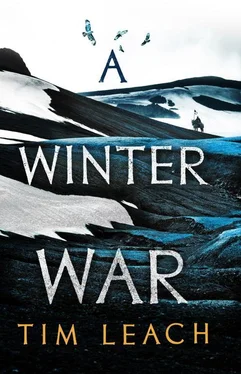
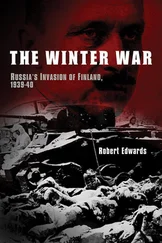

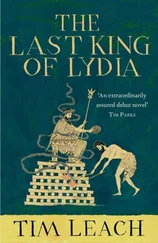
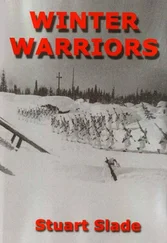
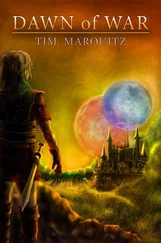

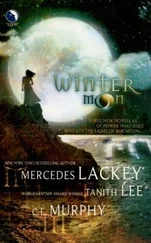
![Стюарт Слейд - Воины зимы [Winter Warriors ru]](/books/401383/styuart-slejd-voiny-zimy-winter-warriors-ru-thumb.webp)
